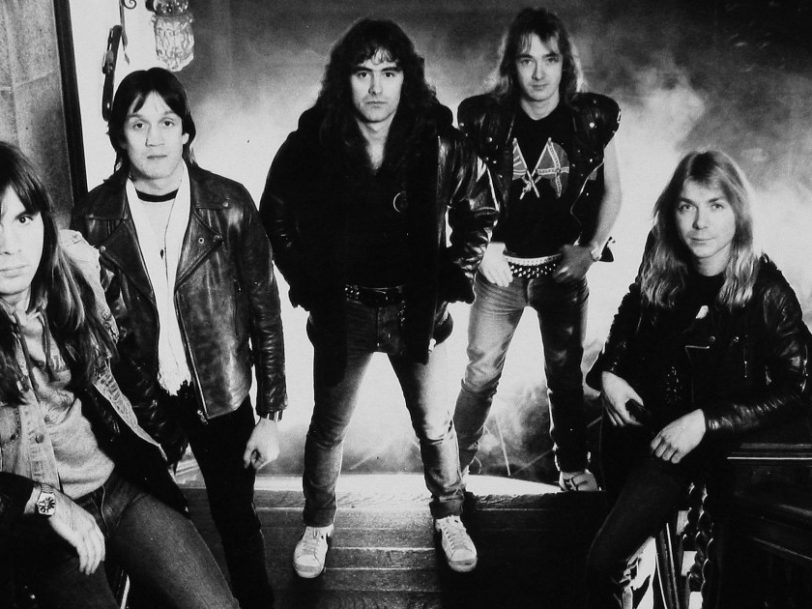Black Sabbath are arguably heavy metal’s founders, and Metallica the genre’s mainstream global ambassadors, but in terms of influence and longevity, Iron Maiden are probably the most important act of them all. They’ve sold upwards of 100 million albums, their fans are among the most loyal in the world and they continue to influence musicians of all persuasions – and not just those from the metal fraternity.
Listen to the best of Iron Maiden here.
“Iron Maiden fans live and breathe and die for them”
“The devotion of the fans moving in unison, pumping their first watching the show… when I see that, I see the paradigm for my future and the relationship I want to have with my fans,” Lady Gaga told Rolling Stone in 2021, describing her experience at an Iron Maiden concert. “Their fans live and breathe and die for Maiden, and [to have] that is my dream.”
It’s astonishing to consider just how deeply Iron Maiden have burrowed into the wider public consciousness. Naturally, they’ve been honoured time and again by metal-inclined publications such as Kerrang! and Classic Rock, but they’ve also won everything from Grammy Awards to Ivor Novellos and, in 2012, their landmark third album, The Number Of The Beast, was voted best British album of the last 60 years in a poll relating to Queen Elizabeth II’s Diamond Jubilee.




